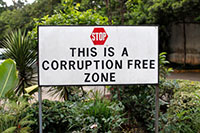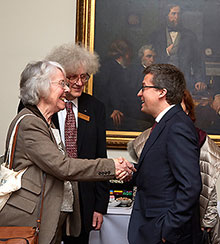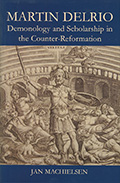|
| Can't view this email? Please click here to view the online version. |
|
 |
|
|
|
|
|
 Major new anti-corruption research programme is launched
Major new anti-corruption research programme is launched
The British Academy has launched a global research programme in partnership with the Department for International Development (DFID) to identify new initiatives that can help developing countries tackle the scourge of corruption and the negative impact it has on millions of people's lives.
An international competition has been opened seeking leading researchers based in the UK and worldwide to run a series of research projects that can help developing countries implement more effective policies to reduce corruption – drawing on expertise across different disciplines such as economics, political science, anthropology and sociology.
|
|
|
 |
|
|
|
|
|
|
|
|
Politics researchers focus on the General Election
|
|
With the imminent General Election likely to be one of the most interesting ever, it is, not surprisingly, the subject of significant academic research – and the British Academy has awarded grants to seven studies exploring different aspects of the election through its Small Research Grants scheme.
The historian, Professor Dennis Kavanagh, will produce a definitive book-length study of the election, continuing a series of such studies begun with R S McCallum's pioneering work on the 1945 General Election, while the Qualitative Election Study of Britain 2015, led by Dr Edzia Carvalho (University of Dundee) will examine why the set responses used in election surveys are unable to capture the complexities of why people vote the way they do.
Other researchers are investigating electoral integrity, exploring with poll workers the challenges and problems that are faced on Election Day; psychological insights into women's political attitudes; the UK Independence Party's campaign; and the effects of election news reporting in the main national news media.
Further information about the British Academy/Leverhulme Trust programme of Small Research Grants.
Stop Press: Special British Academy Pre-Election Event
Given that every opinion poll now suggests the coming Election may again be indecisive, the British Academy is staging a special panel discussion at the end of April to ask: What Happens When No-one Wins? What would an inconclusive General Election result mean for you/us all? And what do the lessons of history teach us? Come and hear what expert political scientists and historians think and put your questions to them.
Full details will be announced very shortly. Click here to register your interest.
|
|
|
|
|
|
Get involved in Being Human!
|
|
The national festival of the humanities, Being Human, is to return in November 2015 after its successful first year in 2014, which featured 162 events organised by over 100 universities and cultural organisations across the UK. The 2015 festival will run from 12 to 22 November for ten days of big questions, big debates and engaging activities for all.
The festival's core aim is to make research in the humanities accessible and engaging to non-academic audiences, and to demonstrate the role of the humanities in the cultural, intellectual, political and social life of the UK. The call for participation is now open and the deadline for applications is Friday 17 April. Being Human is supported by the British Academy, in partnership with the School of Advanced Study and the Arts & Humanities Research Council (AHRC).
|
|
 |
|
|
|
|
|
British Academy scheme helps the UK's rising stars to shine
|
|
|
A new British Academy scheme will help Early Career Researchers engage with each other across the UK, sharing their research and celebrating the wide range and creativity of early career scholars through a variety of interdisciplinary seminars, podcasts and public events. 34 awards have been made through the Academy's Rising Star Engagement Awards (BARSEA). The scheme provides funding of up to £15,000 for each project. |
|
 |
|
|
|
|
|
|
|
2015 Schools Languages Awards are launched
|
|
The British Academy is pleased to announce the launch of its Schools Language Awards for 2015. Following three successful rounds in 2012, 2013 and 2014, the Academy is inviting applications from schools, colleges and other education providers, including supplementary schools, which encourage excellence in language learning. A total of 14 regional awards of £4,000 will be made to winners in different parts of the UK, plus an extra £2,000 for two overall national winners.
The awards seek to celebrate innovative and exciting projects that encourage larger numbers of students to take languages to advanced and degree level (i.e. beyond the age of 16), which show imagination and creativity in improving take up and enthusiasm for language learning, and which help target learners who are disadvantaged or who have less access to language learning.
|
|
 |
|
|
|
|
|
National academies host European commissioner's first UK public lecture
|
|
The European Commissioner for Research, Science and Innovation, Carlos Moedas, made his first official visit to London on 23–24 March. On the evening of 23 March the British Academy, the Academy of Medical Sciences, the Royal Academy of Engineering, the Royal Society and the Royal Society of Edinburgh organised a joint public lecture and debate with the Commissioner at the Royal Society. The Commissioner spoke about 'science without borders', making reference to the success of the UK in gaining European research funding, the value of the European Research Council, and the importance of international collaboration.

|
|
 |
|
| British Academy Foreign Secretary Dame Helen Wallace greets Commissioner Moedas (right), alongside Professor Sir Martyn Poliakoff of the Royal Society. |
|
|
|
|
|
|
Newton Fund offers support to overseas researchers
|
|
The British Academy has made over 40 awards to researchers across the humanities and social sciences, committing £1.5 million of funding in the first round of the new Newton Fund. These awards will develop the skills and capacity of researchers in Brazil, Mexico, South Africa, and Turkey, each working with a UK co-applicant. The collaborations include research on Islamist radicalisation in Turkey, the role of cultural heritage and food security to alleviate poverty in Brazil, and youth employment schemes in South Africa. The Academy is also working with a number of overseas partners to provide fellowship and mobility grant opportunities over the next five years.
The British Academy is one of several UK delivery partners for the £375 million Newton Fund, operated by the Department for Business, Innovation and Skills and part of the UK's Official Development Assistance (ODA) commitment. The Fund aims to use the UK's strength in research and innovation to promote the economic development and social welfare of partner countries.
|
|
 |
|
|
|
|
 |
|
The Humanities in Policymaking |
|
|
The British Academy is partnering with the Cambridge Centre for Science and Policy on its Annual Conference on the topic: 'How can government make better use of expertise and evidence from the humanities?' The conference takes place at Murray Edwards College and Churchill College, Cambridge on 14 April 2015 and will explore opportunities for improving the way government accesses, assesses and makes use of expertise from the humanities, and offer examples of the significant contribution these disciplines have made to public policy. Topics to be discussed will include the multiple dimensions of climate change, understanding the financial future with lessons from the past and the place of the humanities in dealing with conflict. |
|
 |
|
 |
|
Other Worlds |
|
|
|
| In this year's British Academy Literature Week we explore the fantastical and the magical with a week on fairy tales and folk tales, literary genres which transcend cultural, historical and national boundaries. Join authors, academics, writers, social commentators and cultural figures to explore some of the oldest genres in literature and to understand why, in a modern world, we are still so captivated by the chance to escape to 'other worlds'.
|
|
 |
|
 |
|
The British Academy at Hay |
|
|
British Academy returns to the Hay Festival in 2015. Professor Diarmaid MacCulloch will give The British Academy Hay Lecture on 'Sex and the West', linked to his BBC2 series to be broadcast in April. And, looking ahead to the next series of British Academy Debates on Energy and the Environment in Autumn 2015, the President of the British Academy Lord Stern talks about his forthcoming book Why Are We Waiting?: The Logic, Urgency, and Promise of Tackling Climate Change. Full details to be announced shortly. |
|
 |
|
 |
|
Tackling Today's Terrorists: The challenges for national security |
|
 Former Director of GCHQ Sir David Omand will be in conversation with Professor Richard Aldrich to discuss why counter-terrorism policies need to take account of how terrorist organisations constantly adapt and innovate. They will reflect on how security practitioners' own actions have been influenced by changes to jihadist and dissident republican terrorist practice.
Former Director of GCHQ Sir David Omand will be in conversation with Professor Richard Aldrich to discuss why counter-terrorism policies need to take account of how terrorist organisations constantly adapt and innovate. They will reflect on how security practitioners' own actions have been influenced by changes to jihadist and dissident republican terrorist practice. |
|
 |
|
|
|
|
|
|
|
|
|
|
|
|
|
|
 |
|
Also published in march was the latest volume in the British Academy Postdoctoral Fellowship Monograph series. Martin Delrio: Demonology and Scholarship in the Counter-Reformation by Jan Machielsen recovers the lost world of Delrio's wider scholarship, placing him as a figure of considerable interest not only to historians of witchcraft but to the broader fields of early modern cultural, religious and intellectual history as well.
|
|
|
|
|
|
|
|
| Click here for more information on all our academic publications |
|
|
|
|
|
|
|
Making a will
|
|
|
|
|
The British Academy is now a member of the National Free Wills Network, through which it is able to offer a free simple will-writing service to its Fellows and friends via a network of local solicitors across the country. Including a gift to the Academy is not compulsory, but is encouraged, and in many cases it could reduce your tax bill significantly. To find out more please email Jennifer Hawton, Development Officer.
|
|
|
 |
|
Further information on the activities highlighted above, and many others,
can
be found on the British Academy website: www.britishacademy.ac.uk |
|
|
|
| To unsubscribe/subscribe please email newsletter@britac.ac.uk |
|
Copyright © 2015 British Academy,
All rights reserved. |
|
|
|